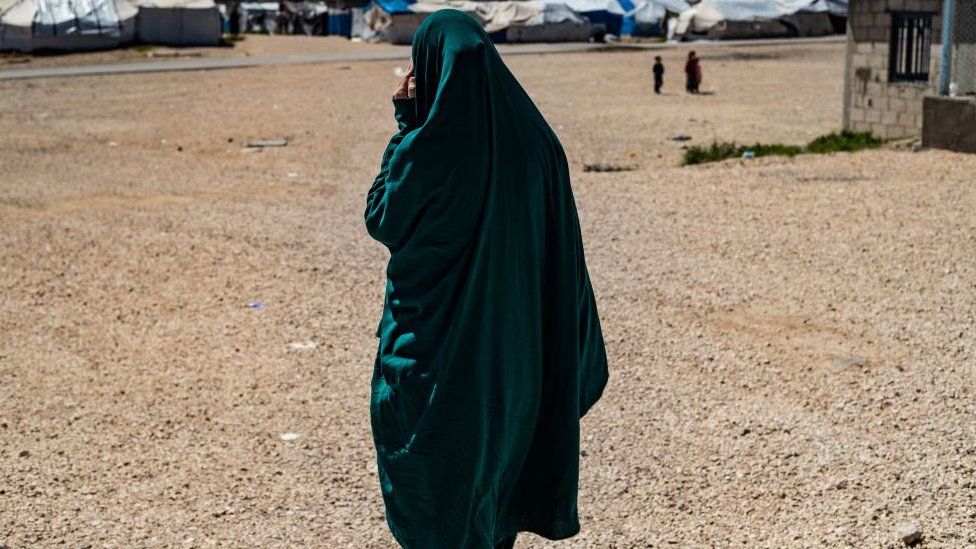ARTICLE AD BOX
By Matt Murphy
BBC News
 Image source, DELIL SOULEIMAN
Image source, DELIL SOULEIMAN
A French woman at a camp in Syria in 2021, where relatives of suspected IS fighters are held (file picture)
France has been ordered to re-examine the repatriation requests of two French women accused of travelling to Syria to join the so-called Islamic State group.
France has long refused to allow IS members to return on security grounds.
But the European Court of Human Rights (ECHR) said the women had been denied the right to enter a country "of which (one) is a national".
It ordered the French government to review the case and ensure against "arbitrariness" of the refusal.
Officials in Paris have argued that French nationals who committed crimes in Syria and Iraq must face local justice, rather that being repatriated to their home country.
But the Strasbourg court said officials had to "re-examine the repatriation requests, in a prompt manner".
The two women, aged 31 and 33 respectively, left France in 2014 and 2015 with their partners. They travelled to the Syrian city of Raqqa and the Iraqi city of Mosul, where they later gave birth to several children.
Since the fall of the so-called IS, the women have been held in Kurdish controlled refugee camps in north-eastern Syria, and their parents - who brought the case - said they faced the risk of disease and malnutrition.
They also alleged that their lives at the camp are at risk at the camp and asked the court to ensure that their rights under the European Convention on Human Rights were protected.
But judges said the French government cannot be held responsible for conditions in Syrian camps since "it was not exercising its jurisdiction there".
The ECHR is a court of the Council of Europe, which has 46 members, and is separate to the European Union.
Its decision could create a political headache for a number of European governments, who have sought to prevent the return of citizens who joined IS.
Thousands of former IS members are believed to be held in Syrian camps and human groups say some 75 French women and 160 children remain at refugee camps.
Another 40,000 foreign nationals, most of them Iraqis, are also detained in camps across Syria.
In the UK, the British government has faced a long-running dispute with Shamima Begum.
She was 15 years old when she and two other east London schoolgirls travelled to Syria to join the IS group in 2015.
The UK government stripped her of her citizenship and denied her requests to return to the country after she was found at a refugee camp in Syria by British journalists.
But other countries, such as Ireland - who recently tried a former member of its defence forces over her membership of IS - have chosen to allow citizens to return and later place them on trial.

 2 years ago
31
2 years ago
31








 English (US) ·
English (US) ·